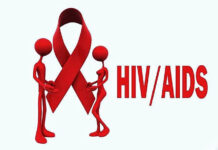Depression is a common but serious mental health condition affecting millions worldwide. Recognizing and addressing depression is crucial for mental wellness.
Recognizing Depression
Emotional Symptoms:
– Persistent sadness or hopelessness
– Loss of interest in activities
– Feelings of guilt or worthlessness
– Irritability or frustration
Physical Symptoms:
– Changes in appetite or weight
– Sleep disturbances
– Fatigue or lack of energy
– Unexplained aches and pains
Cognitive Symptoms:
– Difficulty concentrating or making decisions
– Negative thoughts
– Thoughts of death or suicide
Behavioral Symptoms:
– Withdrawal from friends and family
– Reduced social activities
– Neglecting responsibilities
– Increased use of alcohol or drugs

Addressing Depression
Seek Professional Help:
– Consult a mental health professional for diagnosis and treatment
– Medication: Antidepressants may be prescribed
Lifestyle Changes:
– Regular exercise
– Healthy diet
– Adequate sleep
Social Support:
– Connect with loved ones
– Join support groups
Self-Care Strategies:
– Engage in hobbies
– Practice relaxation techniques
– Set realistic goals
Recognizing and addressing depression is key to mental wellness. Early identification and appropriate treatment, combined with lifestyle changes, social support, and self-care, can significantly improve quality of life. Reaching out for help is a sign of strength. If you or someone you know is struggling, seek support.




